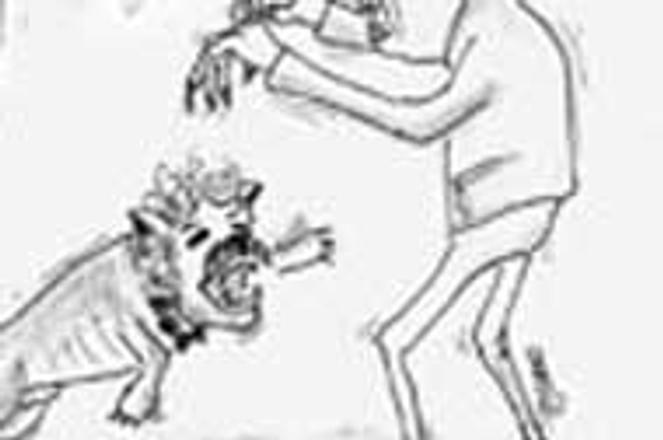illustration: Ján Svrček
At first, the decision of former Telecom Minister Gabriel Palacka to resign on August 9 seemed a mature and responsible one. His competence and honesty questioned, Palacka stepped down without having to be dragged from his seat.
But a closer look at what Palacka and his boss, Prime Minister Mikuláš Dzurinda, said during the episode, shows that far from taking responsibility for bungling his job, Palacka blamed media hysteria and political backstabbing for his departure. Moreover, far from clearing the air and restoring stability to the cabinet, Palacka's departure simply reinforced the impression that Dzurinda's ministers still don't understand how important it is to avoid corruption.
For starters, Palacka's assertion that he resigned because "I have had to spend most of my energy defending myself against various attacks and unfounded accusations" - and thus could not devote full attention to his job - gave his audience the impression that the minister had been the innocent victim of a media campaign to discredit him. Nonsense - if Gabriel Palacka and his Telecom Ministry colleagues had not made such an absurd mess of a tender for an advisor on the privatisation of Slovak Telecom (ST), if they had not swept legal objections under the carpet in returning an operating license to Slovak Airlines, if ST Director Emil Hubinák had been selected through a public tender as promised rather than simply given the job, if Palacka's advisor Tibor Petrus had not also been head of the ST Supervisory Board and a representtive of ST supplier company Global One - in other words, if there were no incompetence, cronyism or conflict of interest to report, Palacka would not have been so interesting to the Fourth Estate. He stepped down because he was a rotten minister, not because the media hounded him out of office.
Similarly, when cabinet investigators discovered that the ministry's Tender Commission had broken the Commercial Code on two occasions in selecting an advisor for ST's privatisation, Palacka dismissed these infractions as "procedural" and added the following remarkable observation: "If a similar investigation was made of any other ministry, similar infractions of the law would be discovered." Obviously, the minister intended his audience to believe that violations of the law under his tender as minister were unavoidable, and only media nit-picking had created such a fuss about it.
Nor did Dzurinda seem to view the tenure of his minister - an old friend from the Prime Minister's days with the railways - as lacking in some way. "Mr. Palacka still has my full professional and political support," he said, appealing to the Christian Democrat faction of his own SDK party, which had first demanded an investigation of Palacka's conduct, to "stop destabilising the government."
If Justice Minister and Christian Democrat Chairman Ján Čarnogurský had not pushed so hard for a review of the Telecom Ministry, it is possible that Palacka would still be in office today, botching tenders and surrounding himself with cronies. Far from destabilising the government, Čarnogurský may have returned a small measure of credibility to it, credibility that Dzurinda is doing his best to destroy by defending his old pal Gabriel.
Even the manner in which Palacka was replaced shows that little has changed in Dzurinda's authoritarian style of rule. The new minister is to be Jozef Macejko, head of the Slovak Road Administration. Given that Palacka was a member of the Christian Democrat party, his seat should be filled by another Christian Democrat, according to the rules of the coalition agreement. However, Macejko, as Palacka was before him, is a Dzurinda man, and was named to the post by Dzurinda without the support of the Christian Democrats, and indeed without consultation with any of the SDK's member factions.
Thus, while Palacka's resignation at first appeared to be a refreshing sign of political responsibility, in reality it was a fit of political sulks whose main messages were as follows: a) it is OK for ministers to break the law, and it is unsporting to make a fuss about it; b) personal alleigances count for more than probity in government; c) the Prime Minister, like his predecessor, loathes opposition from his political allies, and is turning government into a One Man Show.
Over 57% of voters who support the ruling coalition also support a cabinet reshuffle in the fall, according to a recent poll. Many of the government's most important supporters last September are publicly recanting - musician and entertainer Jaroslav Filip, who used to play SDK rallies during the election campaign last year, said in a recent interview with the Domino Fórum weekly that "I'm beginning to get the feeling that Dzurinda doesn't have what it takes," while Toronto-based composer Peter Breiner told the same paper that "Dzurinda has never convinced me of anything." If the Prime Minister does not begin to place more emphasis on professionalism and competence in his own government, the next post to be vacated may be his own.


